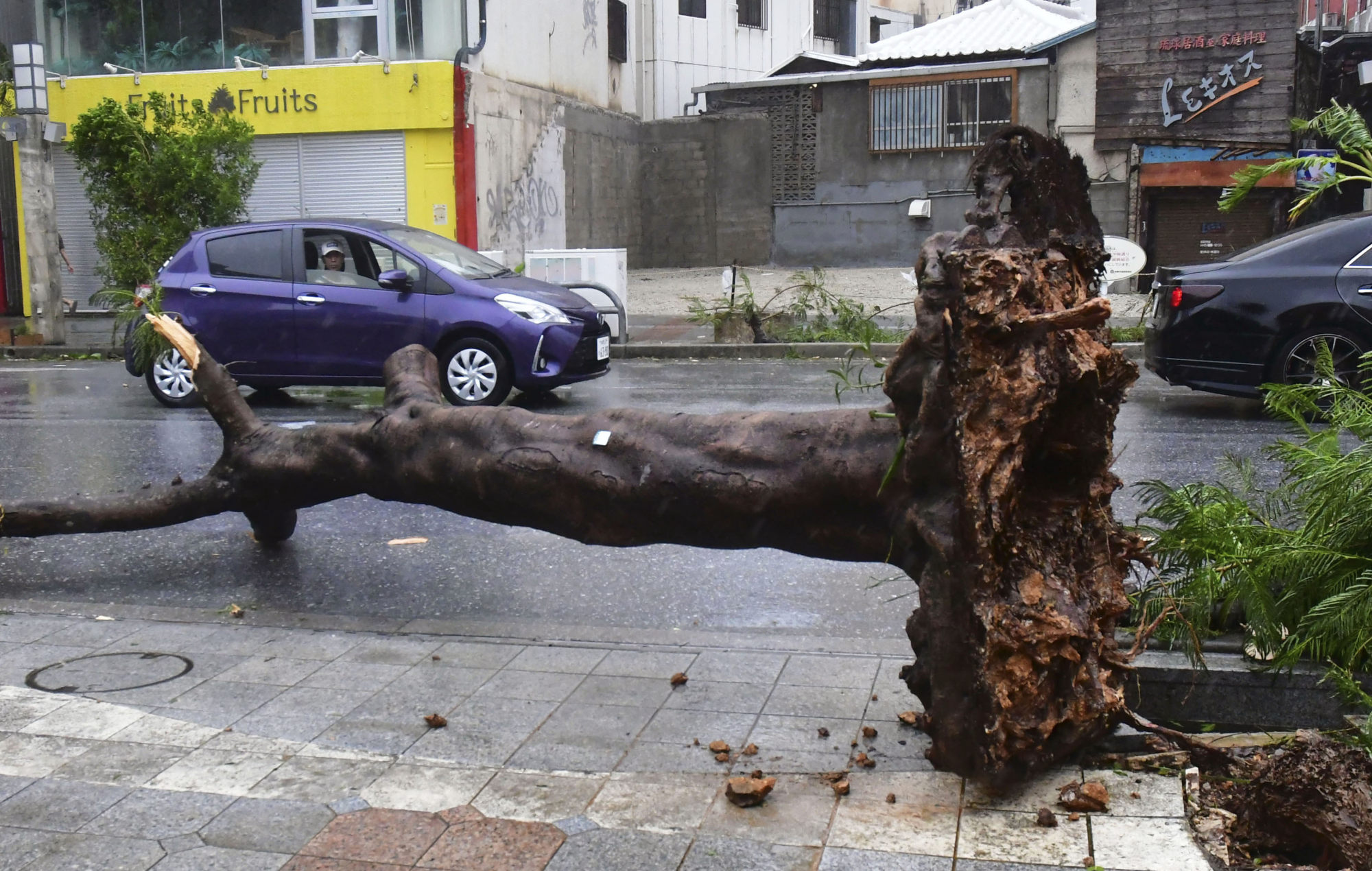
Explainer | Typhoon Khanun left some Hongkongers stranded in Japan. Here’s what to do if you get stuck abroad with no way home
- Industry insiders dish advice on what to expect from flight cancellations and the usefulness of insurance
- Immigration Department has various channels for help for city residents seeking assistance abroad
Dozens of Hongkongers were stranded in Japan’s Okinawa this week as Typhoon Khanun pummelled parts of the country, leaving two dead and 166,000 households without power.
At least 53 residents had contacted Hong Kong’s Immigration Department as of 10am on Friday requesting help to find transport and accommodation in the popular tourist destination.
Authorities said in the first six months of the year, 1,365 Hong Kong residents have sought help while overseas. Loss of travel documents and calls regarding admission into hospitals were among the most common issues reported.

As international travel rebounds, the Post asks the government, travel experts and insurers what people can do if stranded abroad in similar situations, and what sort of coverage or claims they can make.
1. How do I get in touch with Hong Kong authorities while abroad?
The Hong Kong government has set up four different communication pathways to take.
First, there is a 24-hour hotline for those in distress: (852) 1868. Second, you can also use the hotline via network data when overseas through the Immigration Department Mobile Application.
Third, residents can fill in an Online Assistance Request Form that can be accessed from the Immigration Department’s website.
Stranded Hongkongers seek help from city authorities as typhoon strikes Okinawa
The fourth channel is a new one established in April – WhatsApp (852) 1868 for residents stuck outside the city.
Furthermore, they can also seek help from one of the 14 overseas Economic Trade Offices (ETOs) that are operated by the Commerce and Economic Development Bureau.
According to the bureau, ETOs can help Hong Kong residents get access to information on local medical institutions, and help connect cases to Chinese diplomatic consular missions or the Immigration Department to ensure they can get appropriate advice and help.
2. What should I look out for?
Yuen Chun-ning, executive director WWPKG – one of Hong Kong’s largest travel agencies, suggested travellers stay indoors if they were caught in a typhoon or other storms abroad.
“Stay indoors, or better stay in an airport if necessary,” he said.
The Immigration Department suggests that Honkongers maintain contact with friends and family back home to update them on the circumstances. Travellers should also ensure their documents and personal belongings are well-kept.
Typhoon Khanun churns through Japan’s Okinawa as it bears down on China
The Travel Industry Authority recommends that travellers know the emergency numbers of the places they are visiting, such as for police or health services, in the event of an accident or serious injury.
Additionally, travellers are advised to keep track of their mobile data balance and check if they have international call services.
3. What happens if my flight gets cancelled?
“In an emergency such as a typhoon, normally all airlines will take care of the passenger,” said Tommy Tam Kwong-shun, chairman of the Society of IATA Passenger Agents.
Tam said as long as the airport remained open, airlines would help stranded passengers arrange for the next available flights, be it later on the same day or whenever the storm subsided.
However, those who booked through a travel agent or third-party site would have to arrange flight changes through the same means.
If the airport is closed, passengers would either have to wait for it to reopen or check if their airline has a global hotline or email for emergency purposes, according to Tam.
He also encouraged passengers to include a phone number in their flight information when booking tickets, as it would provide a direct line for staff to reach them in the event of changes.
“This is a good kind of practice,” he said. “It ensures the airlines have a way to contact you.”
4. Will my travel insurance cover storms or natural disasters?
Luckily, even if your flight is delayed or cancelled due to a typhoon, earthquake, or some other force majeure, chances are you will be covered.
Selina Lau Pui-ling, chief executive of the Hong Kong Federation of Insurers, said airlines should be able to provide customers with some form of proof for the insurer if a flight was cancelled by a storm.
“Even if it’s a natural disaster, it will be compensated,” she said.
Beyond flights, similar benefits are also available to cover cruises, trains, and other forms of transport, according to Lau.
In the case of delays, travellers could also be eligible for a cash allowance that kicked in every three to 12 hours, Lau said. She added that travel insurance can also help cover the costs of other non-refundable services such as extra nights at a hotel.
Philippine travellers stranded as flights cancelled amid super typhoon pummelling
Some travel insurance packages would also provide emergency evacuation services in life-threatening situations, Lau said.
To arrange for an evacuation, policyholders would have to contact their insurance company which will then liaise with a third-party provider.
“They will evaluate the situation [and] it’s only if your life is in danger,” Lau said. “But people shouldn’t overlook this kind of coverage.”
Lau cautioned that there were terms and conditions to all coverage, however, stressing the importance of understanding one’s policy in advance.
“Do not just buy the insurance and put it away, make sure you look at it more carefully,” she warned.


